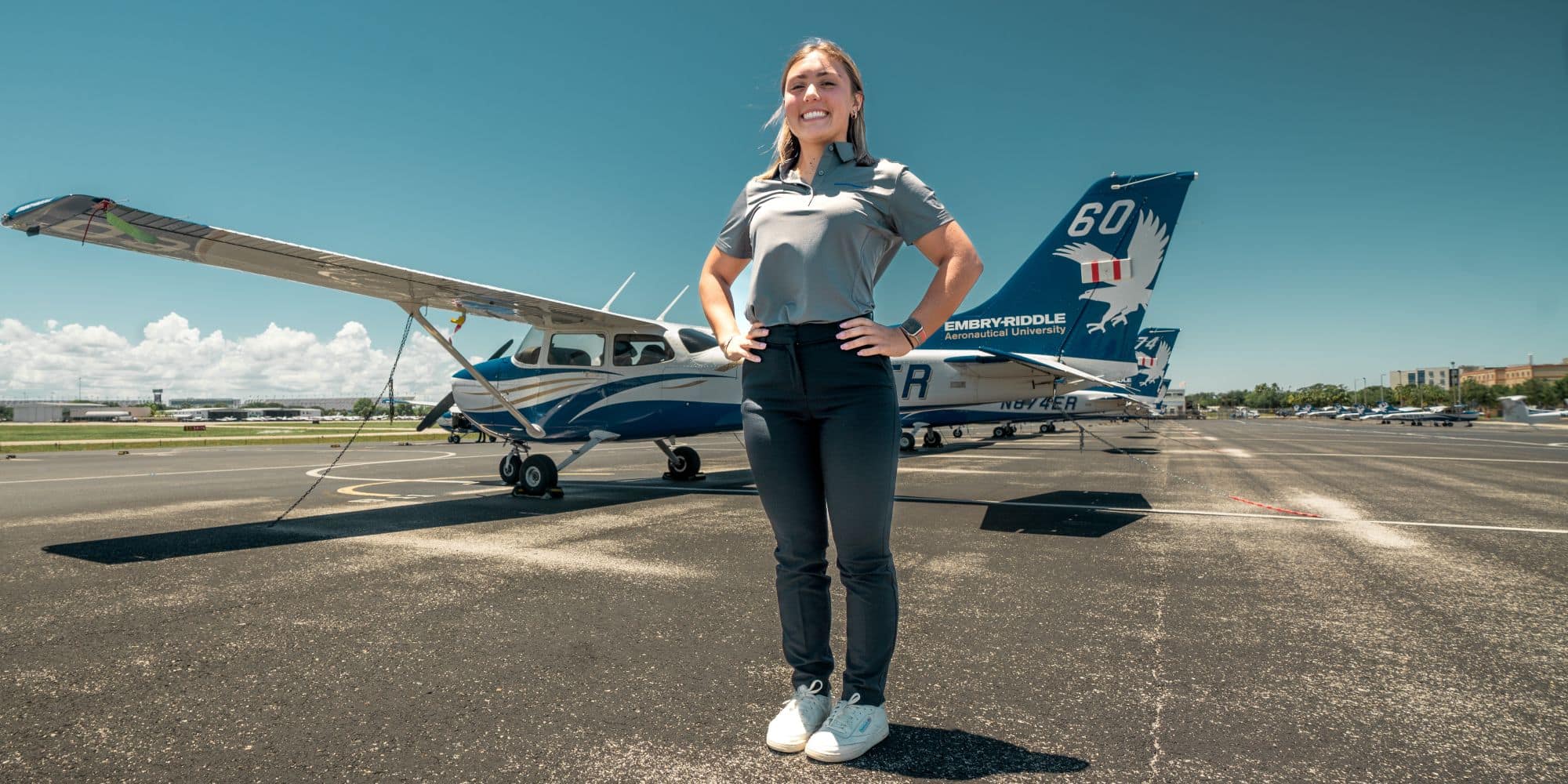

Flight Training Has This Aeronautical Science Student Soaring Toward a Career

Emma Kirschenheiter’s (’25) passion for flying came out of the blue.
It started with an introductory flight at an FBO in her native Long Island, which led to joining the aerospace and flight club at her high school and, ultimately, to Embry‑Riddle Aeronautical University, the world’s renowned leader in aviation and aerospace education.
Eyes on the Skies
Although Kirschenheiter can’t say why the flying bug bit her, she is thrilled that Embry‑Riddle is now helping her turn her new passion into a lifelong profession.
“None of my family is in aviation or even familiar with it,” she said, “and I had been pursuing interest in other fields and career paths. But then my eyes were opened to the beautiful world of aviation.”
Convinced that flying would be at the forefront of her future, she started exploring college flight programs.
“There was no doubt that Embry‑Riddle was one of the best universities in the country,” said Kirschenheiter, who has earned several scholarships, including one from Women in Aviation, and also was named “Flight Student of the Month” in February.
What is Flight Training Like at Embry‑Riddle?
Thanks to Embry‑Riddle’s unique approach to flight training, she has amassed more than 100 hours of flight time since the fall of 2021, obtaining her private pilot ticket and working toward earning her instrument rating.
“The flight training technology is excellent,” said Kirschenheiter, who is pursuing her B.S. in Aeronautical Science at the Daytona Beach Campus. “It’s advanced, easy to use and has helped me build my foundation of flight fundamentals.”
Kirschenheiter credits Embry‑Riddle’s unique PILOT, or Pre-flight Immersion Laboratory for Operations Training program for the vital preparation it has provided. The program, launched in 2021, lets incoming flight students spend their first four weeks learning preflight, checklists and flight procedures in VR environments.
Through custom platforms, students also can practice takeoffs, landings and radio communications and learn the basics of key flight maneuvers.
“Although the PILOT program is rigorous and time consuming, with dedication, hard work and perseverance, it is all possible,” she said. “My experience in the PILOT program has been an amazing beginning to my journey in the aviation industry.”
Kirschenheiter said the VR used in the program “almost life-like” and allowed her to master checklists and other aspects of the school’s standard flight operations procedures before she ever fired up her first Cessna 172 on the school’s ramp at Daytona Beach International Airport.
A Direct Route to the Flight Deck
The successful start to her training has Kirschenheiter currently charting her career course and counting on Embry‑Riddle’s vast connections to the aviation industry to help her get there.
“My ultimate goal is to fly for a major airline, and Delta Air Lines would be an ideal option,” she said. “I aspire to get into the Delta Propel program and one day become a captain. Embry‑Riddle is one of Delta’s partner institutions and will set me up for success in my future endeavors.”
For anyone who wants to follow her to the flight deck, Kirschenheiter offers the following advice:
“Stay focused and keep your eye on the prize. Set goals for yourself to stay on track and work hard. Not every flight will be perfect but learn from your mistakes and use them to make yourself a better pilot and an even better aviator.”
What prize are your eyes on? Put your future in focus at Embry‑Riddle today.

